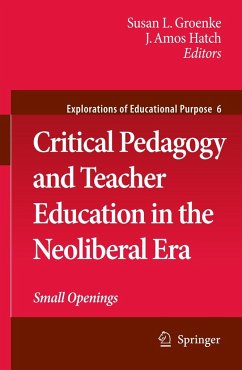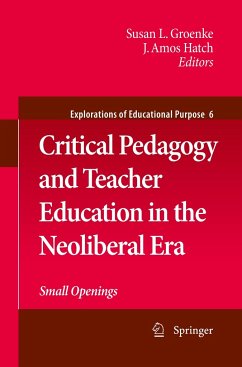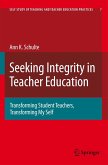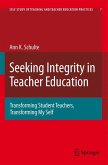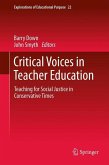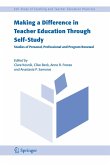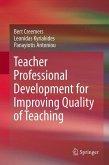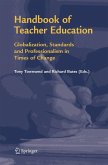The chapters in this edited collection make it clear that critical teacher educators are aware of neoliberalism and its profound impact on public schools and university-based teacher preparation programs. They know the deleterious effects of macro-level, neoliberal forces on the local and particular teaching contexts where they are trying to do critical pedagogical work. The authors describe the havoc NCLB has wreaked, especially on minority and ELL students; the pressures university-based teacher preparation programs feel to align themselves with neoliberal agendas; and the frustration of knowing that critical work is not always valued, supported, or understood in academe.
Yet all of the authors in this book persist, finding or creating "small openings" in their contexts that foster the critical reflection, intellectual engagement, and examination of alternative paradigms that help beginning teachers pursue deeper understandings about schooling in a democratic society. They describe these openings here.
Susan L. Groenke and J. Amos Hatch It does not feel safe to be critical in university-based teacher education programs right now, especially if you are junior faculty. In the neoliberal era, critical teacher education research gets less and less funding, and professors can be denied tenure or lose their jobs for speaking out against the status quo. Also, we know that the pedagogies critical teacher educators espouse can get beginning K-12 teachers fired or shuffled around, especially if their students' test scores are low. This, paired with the resistance many of the future teachers who come through our programs-predominantly White, middle-class, and happy with the current state of affairs-show toward critical pedagogy, makes it seem a whole lot easier, less risky, even smart not to "do" critical pedagogy at all. Why bother? We believe this book shows we have lots of reasons to "bother" with critical pe- gogy in teacher education, as current educational policies and the neoliberal discourses that vie for the identities of our own local contexts increasingly do not have education for the public good in mind. This book shows teacher educators taking risks, seeking out what political theorist James Scott has called the "small openings" for resistance in the contexts that mark teacher education in the early twenty-first century.
Hinweis: Dieser Artikel kann nur an eine deutsche Lieferadresse ausgeliefert werden.
Yet all of the authors in this book persist, finding or creating "small openings" in their contexts that foster the critical reflection, intellectual engagement, and examination of alternative paradigms that help beginning teachers pursue deeper understandings about schooling in a democratic society. They describe these openings here.
Susan L. Groenke and J. Amos Hatch It does not feel safe to be critical in university-based teacher education programs right now, especially if you are junior faculty. In the neoliberal era, critical teacher education research gets less and less funding, and professors can be denied tenure or lose their jobs for speaking out against the status quo. Also, we know that the pedagogies critical teacher educators espouse can get beginning K-12 teachers fired or shuffled around, especially if their students' test scores are low. This, paired with the resistance many of the future teachers who come through our programs-predominantly White, middle-class, and happy with the current state of affairs-show toward critical pedagogy, makes it seem a whole lot easier, less risky, even smart not to "do" critical pedagogy at all. Why bother? We believe this book shows we have lots of reasons to "bother" with critical pe- gogy in teacher education, as current educational policies and the neoliberal discourses that vie for the identities of our own local contexts increasingly do not have education for the public good in mind. This book shows teacher educators taking risks, seeking out what political theorist James Scott has called the "small openings" for resistance in the contexts that mark teacher education in the early twenty-first century.
Hinweis: Dieser Artikel kann nur an eine deutsche Lieferadresse ausgeliefert werden.

